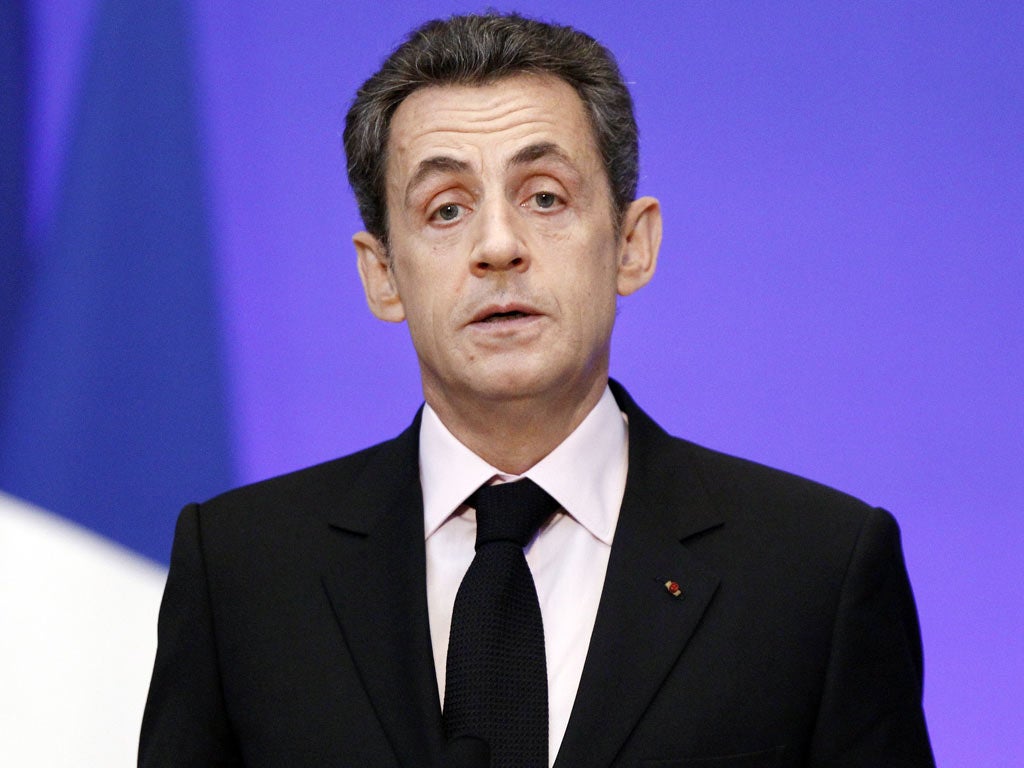Sarkozy rages at Cameron as euro treaty doubts grow

Your support helps us to tell the story
From reproductive rights to climate change to Big Tech, The Independent is on the ground when the story is developing. Whether it's investigating the financials of Elon Musk's pro-Trump PAC or producing our latest documentary, 'The A Word', which shines a light on the American women fighting for reproductive rights, we know how important it is to parse out the facts from the messaging.
At such a critical moment in US history, we need reporters on the ground. Your donation allows us to keep sending journalists to speak to both sides of the story.
The Independent is trusted by Americans across the entire political spectrum. And unlike many other quality news outlets, we choose not to lock Americans out of our reporting and analysis with paywalls. We believe quality journalism should be available to everyone, paid for by those who can afford it.
Your support makes all the difference.Nicolas Sarkozy launched a personal attack on David Cameron yesterday amid growing signs that last week's agreement struck by the other 26 European Union countries without Britain is already fraying at the edges.
Blaming the Prime Minister for the collapse of the Brussels summit, the French president told his MPs: "Cameron behaved like a stubborn kid with only one objective: protecting the City [of London], which wants to carry on like an offshore tax haven. No other country supported him, which is what you call a clear political defeat."
But Mr Cameron told Tory MPs last night that other EU countries had their doubts. He insisted: "There are a number...not at all sure what they are being asked to be signed up for". He said there were "alliances to be built" and appeared to be trying to rally opposition to the Brussels deal in the hope that Britain could return to the negotiating table.
Doubts about the deal are surfacing in several EU capitals. Michael Noonan, the Irish finance minister, said his country might need a referendum.
"Our legal people won't be able to call it until we see a text because it's a fine legal position in Ireland," he said. "You have to go to the people if it requires constitutional change."
Senior finance ministry officials from EU states meet in Brussels today to flesh out the contents of the "inter-governmental" agreement on greater fiscal union due by next March.
Brussels officials insisted there was no immediate threat to the deal.
Although the "fiscal compact" to impose greater budgetary discipline was accepted in outline by all EU countries except Britain, four non-eurozone governments – the Swedes, Danes, Czechs and Hungarians – have since warned they might not be able to go along with it. Tensions have also emerged in eurozone countries, including Germany, France, Italy, Ireland and the Netherlands.
The uncertainty, coupled with investors' and pundits' doubts, yesterday saw the euro fall to its lowest level against the dollar for 11 months.
German Chancellor Angela Merkel insisted: "It is beyond doubt for me that Great Britain will...continue to be an important partner in the EU."
Join our commenting forum
Join thought-provoking conversations, follow other Independent readers and see their replies
Comments